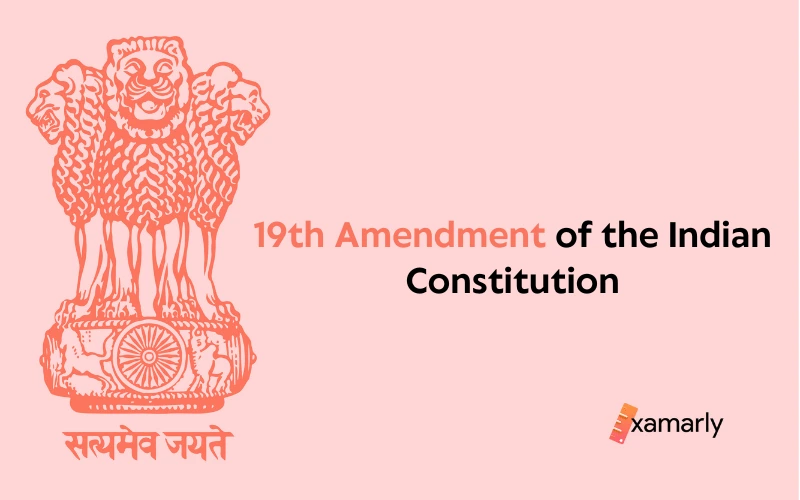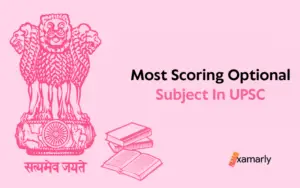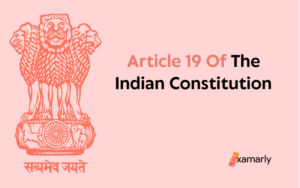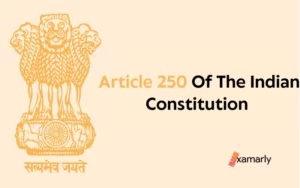The 19th Amendment of the Indian Constitution provided High Court with the power to hear about the election petition. By amending Article 324(1), it scrapped the power of election tribunals of hearing the petition and gave the same to the High Court.
The article will make you aware of everything about the 19th Amendment of the Indian Constitution and the provisions related to it.
We have curated this blog exclusively for the UPSC examination. If you are preparing for the upcoming examination, this is the right place!
- Introduction
- Salient Features and Facts
- Date Enacted
- Statement of Objects and Reasons
- Prominent People Involved
- Important Provisions in the 19th Amendment of the Indian Constitution
- Summing Up
- Frequently Asked Questions
- What is the 19th Amendment of the Indian constitution Act?
- When it was enacted?
- Which Article has been amended?
- Who proposed the Bill in Lok Sabha?
- What is the role of the Election Commission of India?
- What are the other important constitutional amendments related to elections in India?
- What is Article 324 of the Indian Constitution?
Introduction
The 19th Amendment of the Indian Constitution nullified the tribunals in India and instead gave the authority to High Court to hear the trial of election petitions.
The abolition of tribunals and the resting of their powers to the High Court proved to be a turning point in the matters having a connection with elections in India. This made the High Court superior and their hold stronger.
The Act also amended Article 324, subclause (1) and accordingly the Election Commission is given the authority to supervise, direct, and oversee elections.
The Representation of the People Act of 1951 was also modified and it rendered the electoral tribunals’ appointment and authority null and void.
According to the 19th Amendment of the Indian constitution, a special provision concerning the ability to appoint election tribunals for the adjudication of uncertainties and issues coming out of or concerning elections to Parliament and the Legislatures of States was eliminated.
Salient Features and Facts
- The 19th Amendment of the Indian constitution is a significant step in the development of India’s political system. Gopal Swarup Pathak (G.S. Pathak) proposed the Twenty-first Amendment Bill in Lok Sabha on 29 August 1966.
- The proposal was intended to remove the election tribunal and appoint the High Court as the authority to deal with the trial of petitions.
- To put this into effect, a small change was made to clause (1) of Article 324.
- The wording that included the appointment of election tribunals to resolve uncertainties and disagreements related to Parliament and State legislatures was taken out.
Date Enacted
The bill was proposed in Lok Sabha for discussion on the 8th, 9th, 10th and 22nd of November 1966. With minor formal changes in the title in clause(1), the Bill was passed on 22nd November 1966.
The Rajya Sabha then passed the Bill on 30 November 1966, and on 11 December 1966, then President Zakir Hussain approved it. The Bill came into force on the same day.
Statement of Objects and Reasons
- The Act was considered on the suggestions provided by the Commission of India in their reports concerning the Third General Indian Elections in 1962, regarding the abolition of election tribunals and the transfer of case hearings to High Courts.
- The amendment was proposed in Lok Sabha, giving all the powers to settle the issues and decisions of uncertainties to the High Court. This was considered one of the key stages toward giving a single body, which serves as the country’s central decision-making body, the power of superintendence.
- Moreover, the change in clause(1) was necessary to approve the proposal for legislation to amend the Representation of the People Act, 1951, which, among other things, provides for the trial of petitions by High Courts rather than the election tribunals as they are currently, by Parliament.
Prominent People Involved
The twenty-first Amendment Bill or the 19th Amendment of the Indian constitution Act was presented in the Lok Sabha by G.S Pathak who was the law minister at that time.
Further, the Bill was passed in both houses without any clashes and the final approval was given by former President Zakir Hussain.
Similar Posts:
- 99th Amendment of the Indian Constitution
- 100th Amendment of the Indian Constitution
- 101st Amendment of the Indian Constitution
Important Provisions in the 19th Amendment of the Indian Constitution
- Clause (1) of Article 324 was modified by the 19th Amendment of the Indian constitution Act, resulting in the removal of the phrase “including the appointment of election tribunals to resolve uncertainties and disagreements related to elections for Parliament and State legislatures.“
- The Amendment of Article 324 put an end to the election tribunals and the High Court was given the control to hear the petitions and decide on the matters.
- While the Bill was passed in the Lok Sabha after a minor amendment in clause(1), both the Lok Sabha and the Rajya Sabha passed the Bill to the President without changing clause(2).
- After the 19th Amendment of the Indian constitution, clause(1) was rewritten as A Commission shall be in charge of overseeing, directing, and controlling the creation of the electoral rolls for and the conduct of all elections held under this Constitution for the offices of President and Vice-President, as well as for the legislatures of each State.
Related Read: 18th Amendment Of Indian Constitution
Summing Up
The 19th Amendment of the Indian Constitution brought about significant changes in the lives of tribunals and the High Court.
While one body was dissolved, the power was given to another body, i.e., Lok Sabha to decide on the trials of petitions.
Article 324(1) was amended, and the appointment of a tribunal to settle disputes regarding the Parliament or state elections was abolished.
The Bill was proposed by G.S. Pathak and was passed by both Lok Sabha and Rajya Sabha in 1966 finally, then President Zakir Hussain gave his consent on 11 December 1966.
Frequently Asked Questions
What is the 19th Amendment of the Indian constitution Act?
The 19th Amendment Act gave the power of election tribunals to the High Court and terminated the former. As per this Amendment, the High Court now decides on the trial petitions.
When it was enacted?
The Amendment came into force on 11 December 1966 by former President Zakir Hussain.
Which Article has been amended?
Article 324, sub-clause(1) has been amended with minor changes.
Who proposed the Bill in Lok Sabha?
Former Law Minister, G. S. PATHAK introduced the Bill in the Lok Sabha.
What is the role of the Election Commission of India?
It is responsible for conducting and supervising elections in India, including the preparation of electoral rolls, conduct, and the resolution of disputes.
What are the other important constitutional amendments related to elections in India?
Other important constitutional amendments related to elections in India include the 42nd Amendment Act of 1976, which added the words “secular” and “socialist” to the preamble of the Constitution, and the 73rd and 74th Amendment Acts of 1992, which gave greater powers to local government bodies in rural and urban areas respectively.
What is Article 324 of the Indian Constitution?
Article 324 of the Indian Constitution deals with the composition and powers of the Election Commission of India, which is responsible for conducting and supervising elections in the country.






